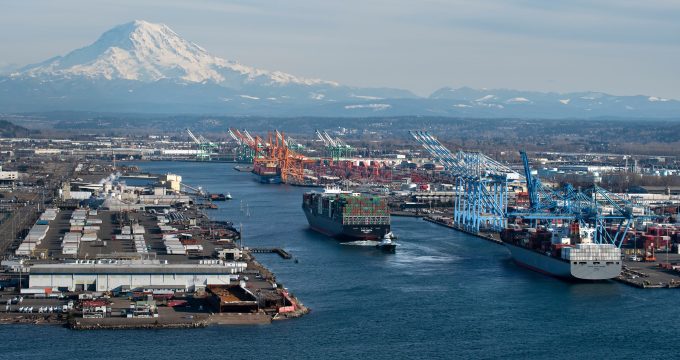News in Brief Podcast | Week 51 | Airfreight peak, management shuffles and automation impasse
In this episode of The Loadstar’s News in Brief Podcast, host and news reporter Charlotte Goldstone ...

Charges for excessive container dwell times on docks are spreading on the US west coast, as ports and operators try to restore some fluidity to congested facilities.
Following announcements of levies at Los Angeles and Long Beach, the practice is now coming into play at Tacoma, with one forwarder expecting carriers to pass on charges and customers will refuse to pay them – leaving forwarders between a rock and a hard place.
The port’s Husky terminal will not release containers that have ...
Keep our news independent, by supporting The Loadstar
Volume surge and an early peak season? 'Don't celebrate too soon,' warning
Container spot rates diverge: to Europe still falling, but firmer to the US
Hapag-Lloyd won't take bookings if port congestion leaves cargo stranded
Ecommerce likely the front-runner in resurge of transpacific trade after deal
China-US trade tariff pause could drive a rebound for transpacific rates
Shippers should check out the 'small print' in China-US tariff cuts
Service chaos from trade ban with India a problem for Pakistan shippers
Airfreight rates ex-China 'loss-making', but hopes of a trade deal stay high
Carriers impose 'emergency operation' surcharges on Pakistan cargo
Serious threat to jobs in US logistics as tariffs cause economic 'stagflation'
15% rebate for box ships as Suez Canal Authority woos carriers
White House u-turns see freighters flying but keep logistics players on their toes
MSC in terminal switch as Nhava Sheva gets strong start to new fiscal year
Peak season or recession? Forwarders and shippers need to 'stay flexible'
Volga-Dnepr claims 'pirate' Canada has 'hijacked' its stranded aircraft

Comment on this article